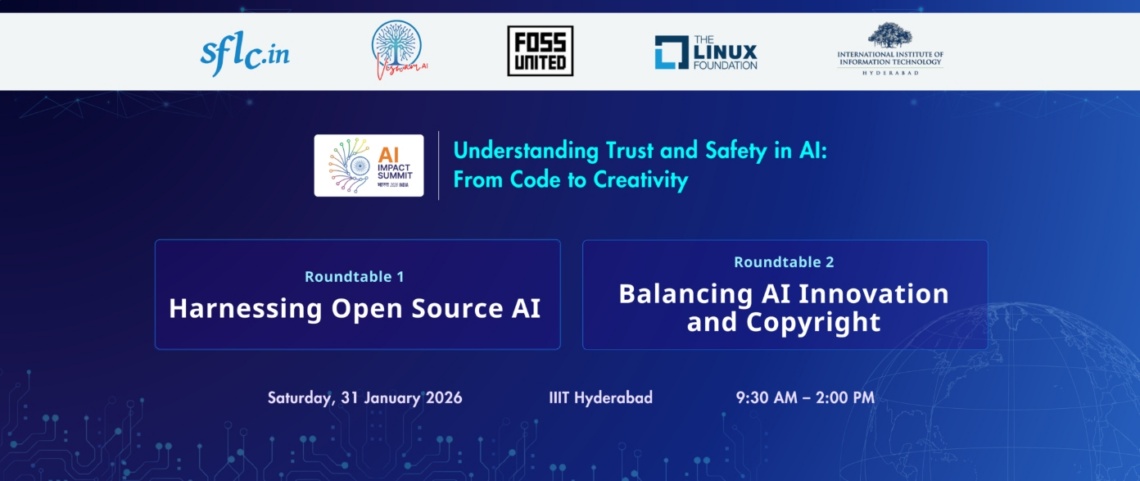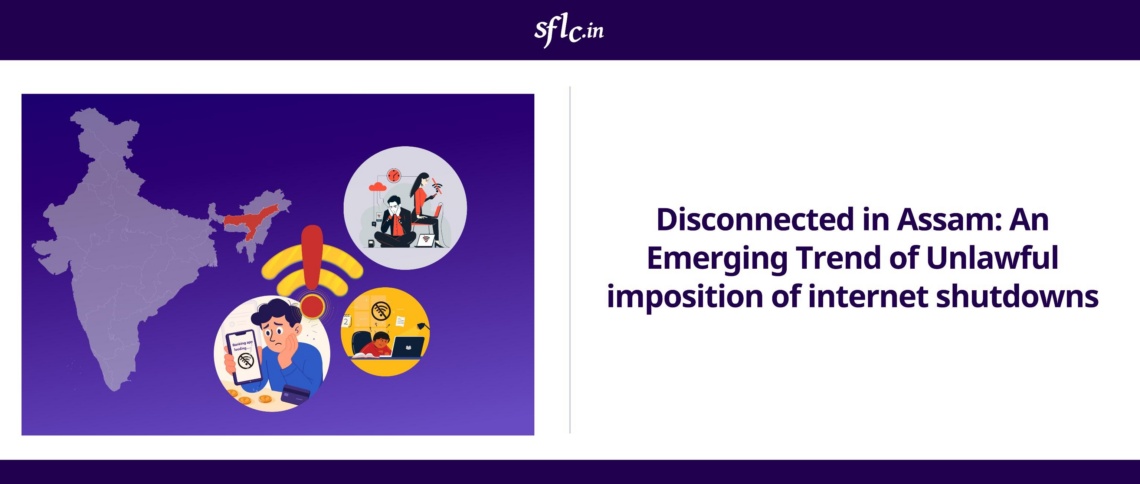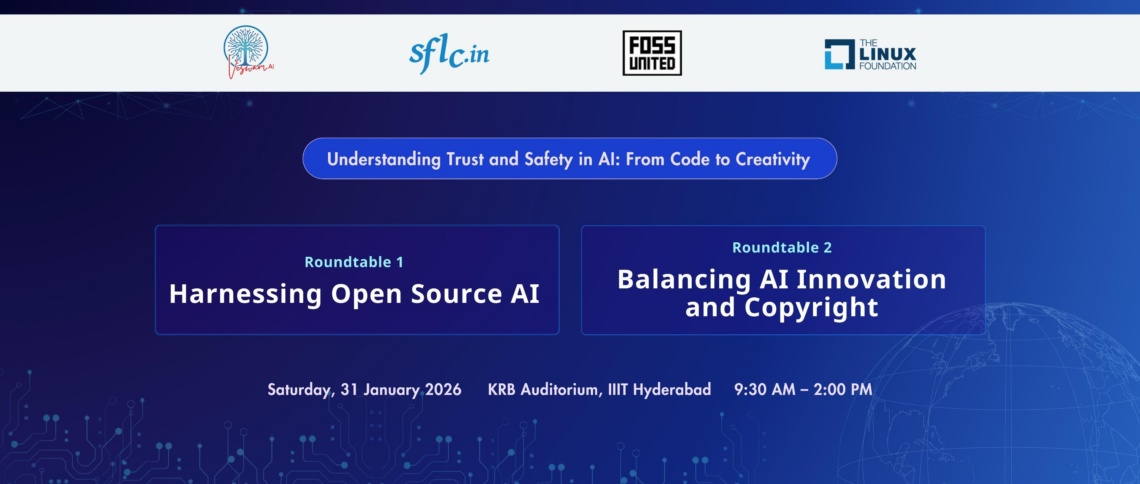On 24th April, 2017, SFLC.in in association with Digital Empowerment Foundation, Internet Democracy Project, IT for Change, Centre for Internet and Society, and Foundation for Media Professionals organized a public discussion titled “Access Denied: Internet Shutdowns in a Digital India” at Hauz Khas Social, New Delhi. The event was meant to be a platform to discuss the increasing instances of Internet shutdowns in an India that’s rapidly moving toward digitalization. The discussion centered around Internet shutdowns as a policy practice, covering the idea behind shutdowns, the ground level implications of frequent access disruptions, and possible solutions to the problem that balance security interests of the state with the need for sustained Internet connectivity. The event had attendees from the industry, civil society, and media.
The discussion started with the keynote speaker Mr. Baijayant Panda, Member of Parliament, Lok Sabha, making the following points:
- He pointed out that open ended Internet shutdowns are taking place in India that continue for days on end without any regard to the provisions of the Information Technology Act, 2000 (hereinafter referred as IT Act).
- A majority of police officials are unaware of the IT Act and frequently resort to Section 144 of the Code of Criminal Procedure, 1973 (CrPC) to control a law and order situation. The police force should be educated and trained on the various aspects of IT Act, related to circumstances under which Internet shutdowns can be allowed.
- Further, he talked about the need for better laws and policies as we move towards a Digital India. He also mentioned that in a civilized democracy, a system of checks and balances should be adhered to and consistency between offline and online laws is imperative.
- The importance of providing equal thrust to data protection and privacy was discussed at length with the example of how wiretapping is a frequent phenomenon in India with bureaucrats approving wiretaps.
- In the end, Mr. Panda suggested that for prolonged durations of Internet shutdowns, a procedure should be developed wherein prior approval of the entire cabinet needs to be taken. He further mentioned that the scope of these shutdowns should be extremely narrowly defined, like in the case of an immediate threat of law and order breakdown. All measures should pass the test of objectivity, accountability and transparency.
The other speakers on the panel made some pertinent points too, with Mr. Abhinandan Sekhri, CEO, Newslaundry, holding the view that the police force should be the last one to decide on the institution of an Internet shutdown. It was also pointed out by him that there is a fundamental flaw in how law making is approached in India, with limited consideration for impact on civil liberties. On policy making, he opined that although the push for better policies in the need of the hour, the courts should not interfere in policy making.
Mr. Muheet Mehraj, Co-Founder, Kashmir Box, spoke about Internet shutdowns in Kashmir and how it affects life and especially, business, including his own startup. He pointed out that the Internet is not a luxury like it was before. It is now a part of our life and who we are. He emphasized that the Internet was designed with freedom and openness of communications as core values and Internet shutdowns have a deep emotional impact on business owners, to the extent of some of them even contemplating suicide. He focused on the need to work on a model that allows essential services like hospitals, educational institutions, etc., to remain accessible even when there is a curfew.
Ms. Sairee Chahal, CEO, SHEroes, indicated that the general public is unaware of Internet clampdowns. She also brought up the issue of a lack of involvement of solid voices from the technology space like website owners, digital entrepreneurs and even hackers in this debate. The Internet community’s participation is crucial to widen the technology debate, and may even be capable of offering technological solutions to problems like rumor-mongering. Also, a robust independent media is essential to counter the layers of discourse related to Internet shutdowns.
A question was asked by Ms. Ritu Srivastava, Assistant General manager, Research and Advocacy, Digital Empowerment Foundation, regarding Internet shutdowns being instituted in the name of social unrest and communal violence. She highlighted the need for solutions using minimalistic methods instead of resorting to drastic measures like completely suspending Internet services. She also drew attention to her organization’s role in measuring the social as well as psychological impact of such network disruptions. Further, it was discussed that telecom stakeholders need to engage more in the Internet shutdowns debate and be more transparent about their data.
Mr. Snehashish Ghosh, Associate Manger, Public Policy, Facebook discussed various instances of law enforcement agencies taking to social media to curb possible violence and prevent the spread of rumors. He also elucidated Facebook’s role in restraining online harassment.
On being asked about the patterns of Internet shutdowns, Ms. Vaishali Verma, Counsel, SFLC.in, described the study on trends in Internet shutdowns conducted by SFLC.in that includes analyzing the type, duration and nature of shutdowns.
During group interaction, a number of interesting remarks were made, a notable few of which were:
- A question was asked about the effectiveness of an Internet shutdown in a sensitive area like Kashmir to control law and order which was answered by stating that Internet shutdowns essentially do not help in such situations because people turn to alternatives.
- It was pointed out that the pattern of Internet shutdowns around the country including the type, duration, nature and the geographical area of the shutdown should be analyzed to come up with a solution.
- The use of counter-speech as a tool to fight rumor-mongering on the Internet instead of a shutdown was discussed.
- The contentious issue of politicization of the Internet was brought up by the audience. The usage of the Internet as a propaganda tool and the need to address the same was highlighted.



